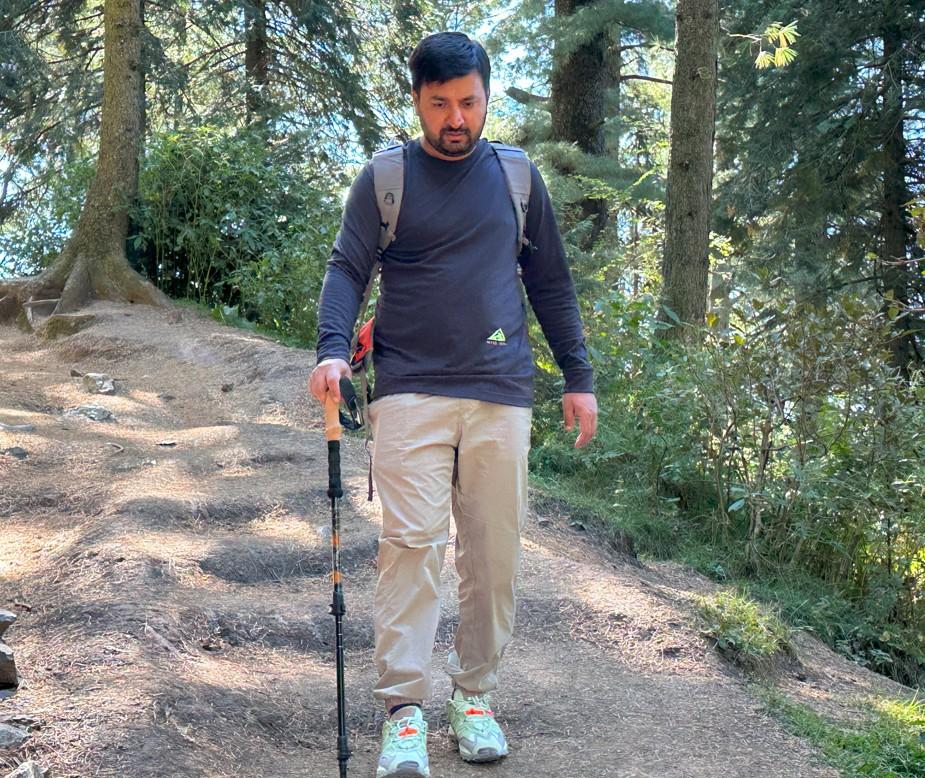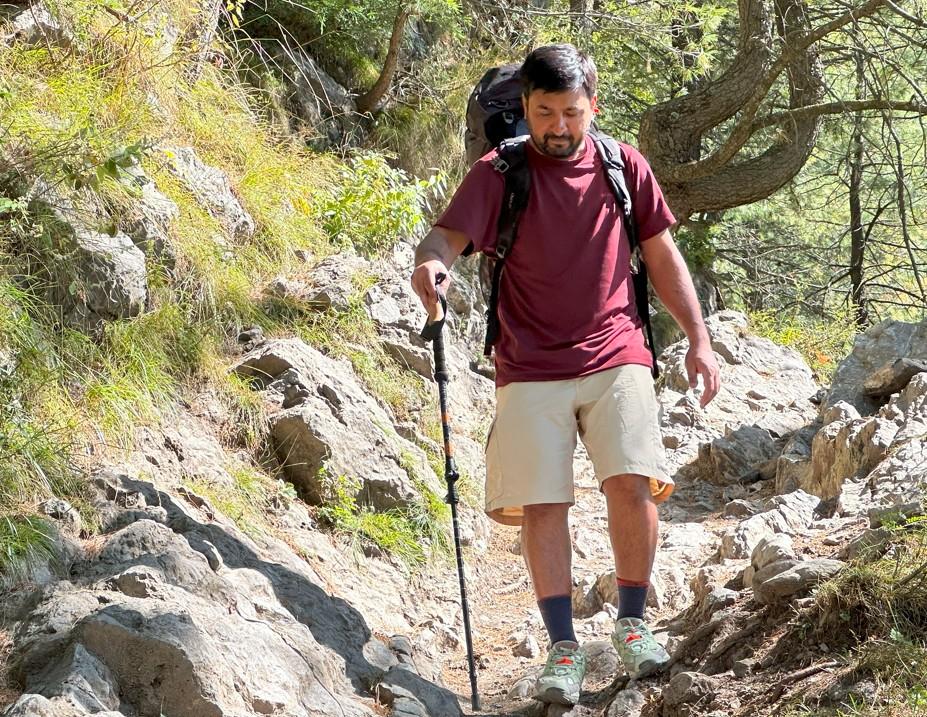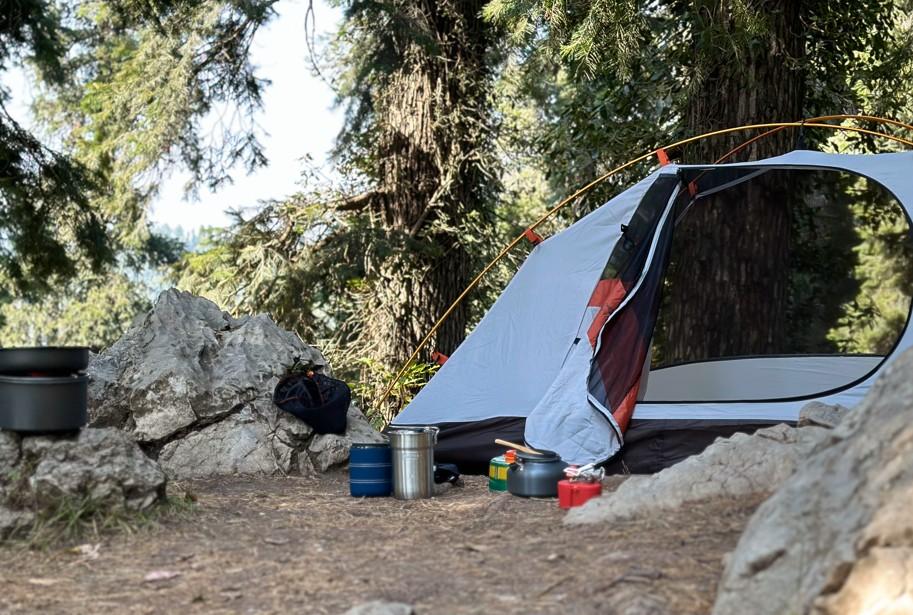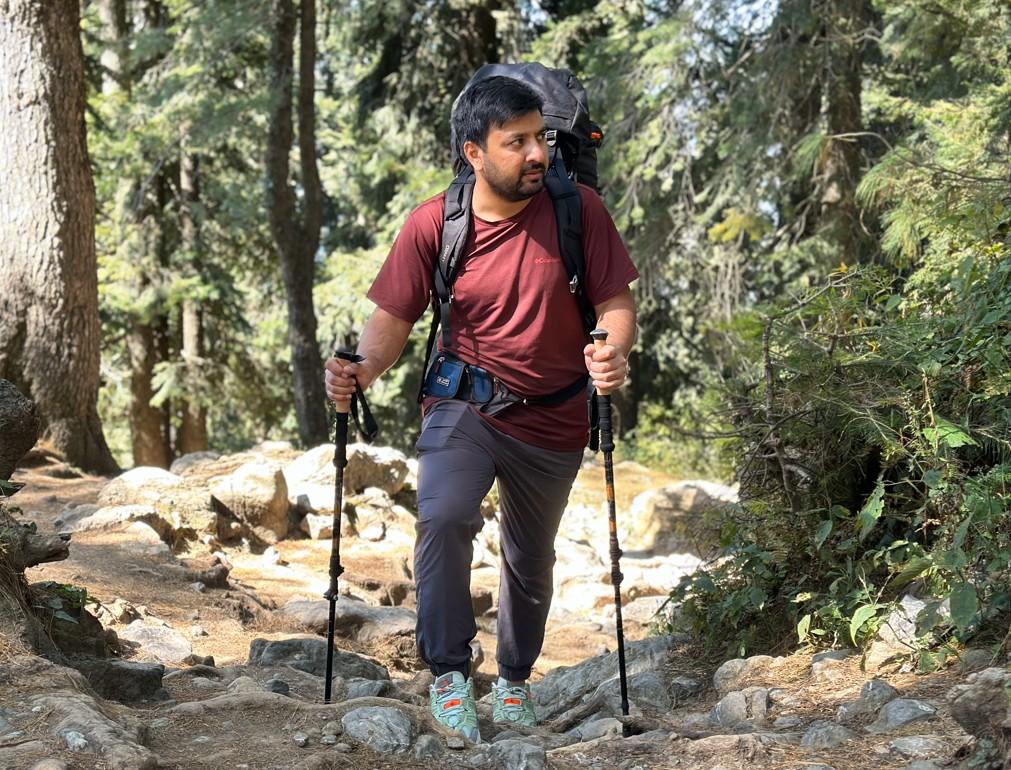The key difference between walking and hiking is the difficulty level of the terrain and the fact that hiking requires practices whereas walking does not. Hiking can be challenging and requires a lot of physical stamina; however, walking simply can be done by anyone at any time. Hiking often takes long durations with various level of difficulty whereas; walking is done for a brief amount of time.
Related: Hiking Vs Trekking: What is The Difference?
Here are the key differences between hiking and walking.
Defining a Hike
Hiking and walking are both great outdoor exercises. They are quite different, but they can appear similar to some people. Hiking is different from walking depending on many factors like terrain, time duration, and pace. Hiking is done for a longer period of time as compared to walking.
Also, hiking is done on a specific trail, preferably in the mountainous region across ragged terrains. Some people prefer to hike alone, but it can also be a social group activity with a set purpose in mind. The connection with nature, the rhythm of walking, and the sense of achievement upon reaching a destination or completing a challenging path are among the rewards of this activity.

For hiking, you do need sturdy footwear that can endure the calamities of nature and at the same time keep you comfortable throughout the hike. The time duration of a hike can take up to several hours depending on the difficulty level and what your destination is.
Defining a Walk
Walking in comparison to hiking can be done at a slow pace and almost anyone can do it. It is not as physically demanding as a hike and any casual footwear would be suitable for it. It is a basic form of movement and it keeps you in good health.
It helps develop cardiovascular health, strengthens muscles and bones, and maintains joint flexibility. It is a less demanding exercise that is suitable for people of all ages and fitness levels. Walking is not dependent on certain environmental conditions.
You can walk anywhere at any time. Like hiking, it is extremely beneficial for your mental health. It reduces stress and anxiety and keeps you motivated.
Walking is often integrated into daily routines, whether for leisure, exercise, or transportation. It encourages a sense of mindfulness, as the act of walking inspires people to be present and aware of their surroundings.
Hiking vs Walking: Key Differences
Terrain
One of the major differences between walking and hiking is the terrain. Walking is usually done on a flat and well-maintained surface.

Whereas hiking is always on uneven, rugged trails on the mountains and natural landscapes. So, hiking is more challenging than walking. The surface is often uneven, steep, and rocky with gravel and debris. Walking is more adaptable and easier for most people.
Hiking presents a greater level of difficulty due to the diverse and often unpredictable nature of the terrain. This difference in terrain is one of the defining features that separate the two activities significantly.
Intensity
Walking is lower-impact and less demanding than a hike. The intensity level depends on and varies depending on the terrain and the physical demand of each.
Walking can be leisurely and done at a comfortable slow pace, while hiking is a more intense activity. The uneven and challenging terrain, which may include steep hills, rocky paths, and altitude changes, needs more strength, patience, and flexibility. Hikers often need to steer clear of the obstacles, such as loose rocks, slippery mud, and roots, which adds to the difficulty.
Hiking offers a more vigorous workout compared to walking, offering an elevated level of physical challenge, endurance, and strength development.
Gear
There is normally no gear needed for a walk through the neighborhood or in a park except for comfortable shoes. Whereas, for hiking you need special gear, including proper hiking footwear.
Depending on the hike’s difficulty, extra gear such as trekking poles, hydration packs, and backpacks for carrying food, first aid kits, and extra layers are sometimes required. For an overnight stay, you also need a tent and sleeping bags.

Gear also depends on the hiking terrain, duration, and weather conditions. Walking needs minimal gear. Hiking on challenging terrain demands planning along with comfort and safety.
Related: Can You Wear Running Shoes For Hiking?
Duration
The duration of both hiking and walking may vary significantly depending on the terrain and intensity. Walking takes about a short time, between twenty minutes and an hour at most.
While hiking can be extensive, taking up to several hours and sometimes days. The duration can extend for a long period of time depending on the difficulty level and the unpredictable terrain and weather conditions.
Purpose
The purpose of hiking and walking lies primarily in the goal and experiences of each activity. Some people do walking for transportation and some for basic exercise. It is a very convenient and low-intensity activity. Also, it is a great way to improve your health without taking much time or commitment.
Hiking, on the other hand, has more purpose when it comes to adventure, exploring, and connecting with nature.
Adventurers hike to experience the beauty of outdoor nature and solitude with unparalleled hiking. It is done on scenic trails through the forest or up the mountains.
When to Choose Walking Over Hiking?
Walking should be preferred over hiking when you want to engage in a low-impact activity. Most people have joint or low stamina problems and can’t genuinely hike.
In such situations, it is always best to choose walking over hiking. Walking is a better choice for short distances, running errands, or when seeking a moderate form of exercise without the physical strain.
When to Choose Hiking Over Walking?
Hiking can be the best choice when you are specifically looking for an outdoor adventure with a deep connection with nature.
If you are looking to build your strength and endurance for fitness purposes or have a set goal in mind, then hiking is always preferred over simple walking. It provides a high-intensity workout and pushes your limits sometimes.
FAQs
Is Hiking Better Than Walking?
They both offer numerous health benefits and it honestly depends on each individual’s preference if they want to hike instead of walking. If you want to improve your stamina and increase your physical strength and you have easy access to do a hike quite often, then it should be preferred over walking.
Does hiking Burn More Fat Than Walking?
Yes! Generally speaking, hiking does burn more calories than simply walking because it is an intense workout. Hiking is an uphill ascend through rough paths and it requires immense physical strength and engage multiple muscle groups which in turn burns a lot of calories than walking.
Is Hiking a Full Body Workout?
Of course, hiking is a full body workout because it engages all muscles and works on your core strength. The legs are profoundly involved when you ascend uphill, downhill, and on uneven terrain. It also involves working the quadriceps, hamstrings, calves, and glutes.
Is Hiking and Walking The Same Thing?
They are similar in the regard that both involve on foot movement activity but in fact are very different in terms of terrain, intensity and purpose. Hiking is done on an uneven rough trail whereas; walking occurs on a flat surface. Hiking is a more intense and challenging workout while walking is a light exercise.
At What Point Does a Walk Turn into a Hike?
A walk can start turning into a hike when he track you are walking on changes and requires more effort. This transition might occur when you are navigating more challenging landscapes that requires more physical strength, balance and endurance. A simple walk can also change into a hike if you encounter a steep up or downhill hike when running errands on foot as well.
What Burns More Calories, Walking or Hiking?
Hiking generally burns more calories because it is more intense and difficult than walking. Since walking is often on flat and even ground, in order to burn more calories, you would have to walk for a long time as it is lighter than a hike, Overall, calorie burn in both activities depends on factors like speed, duration, and individual fitness levels.
Related: Is Hiking a Sport?
